#Cervantes Monsters prince
Text


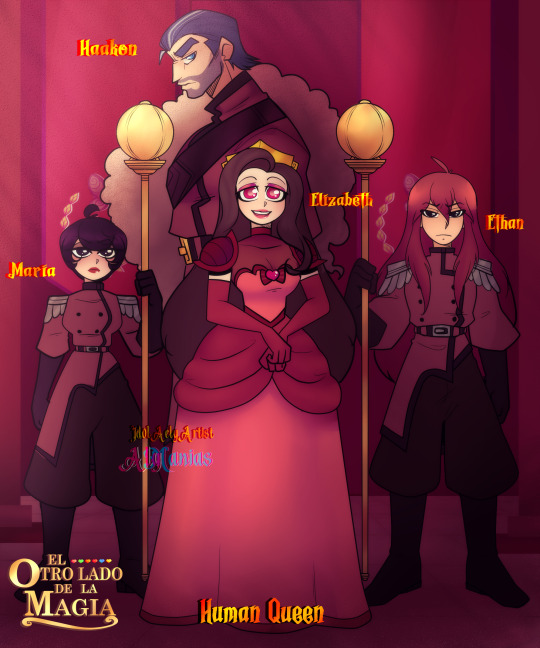
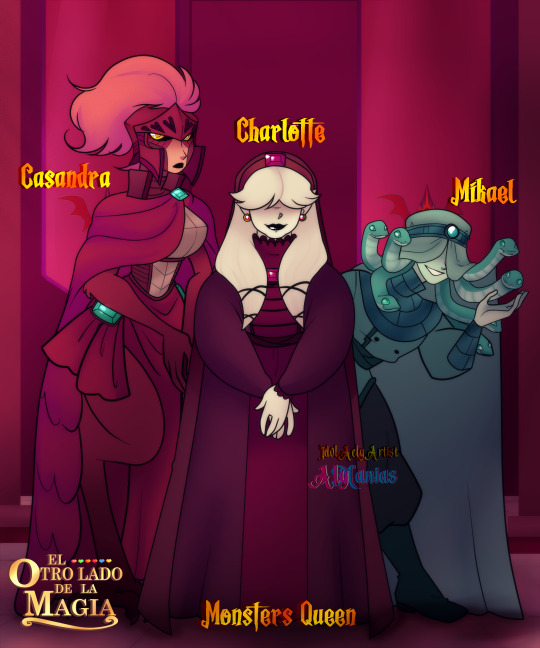

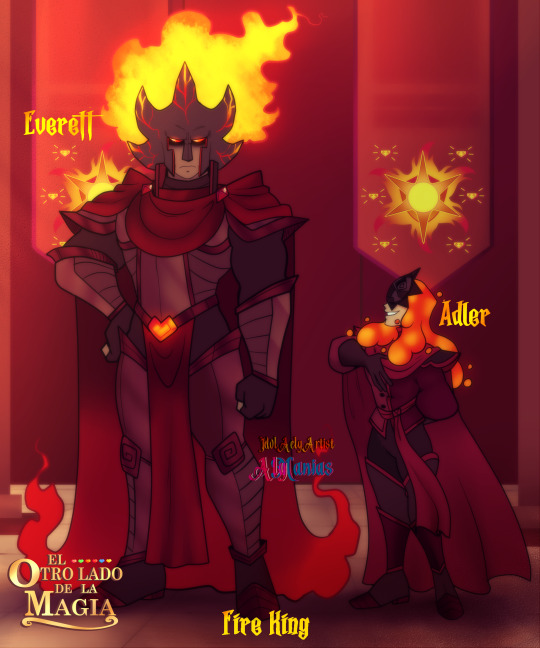
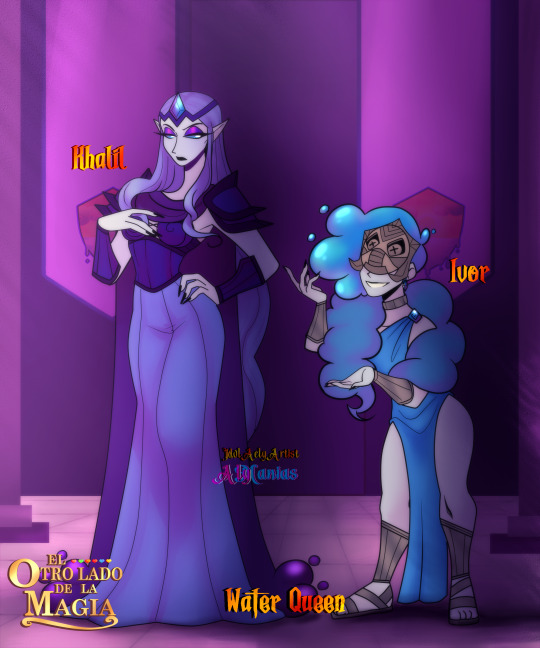
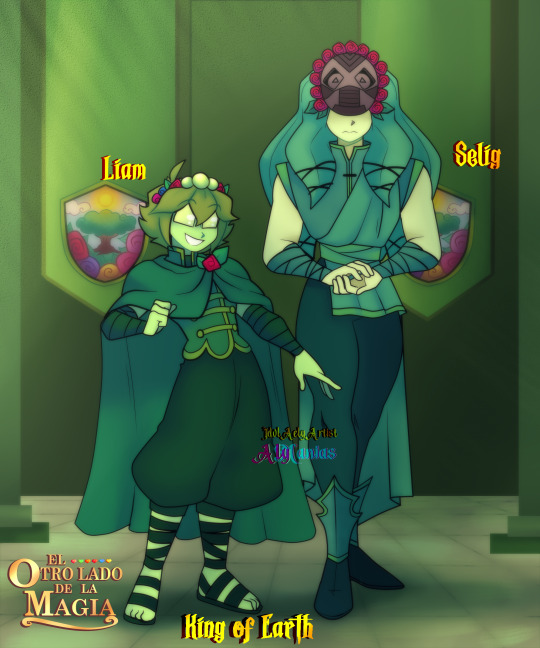
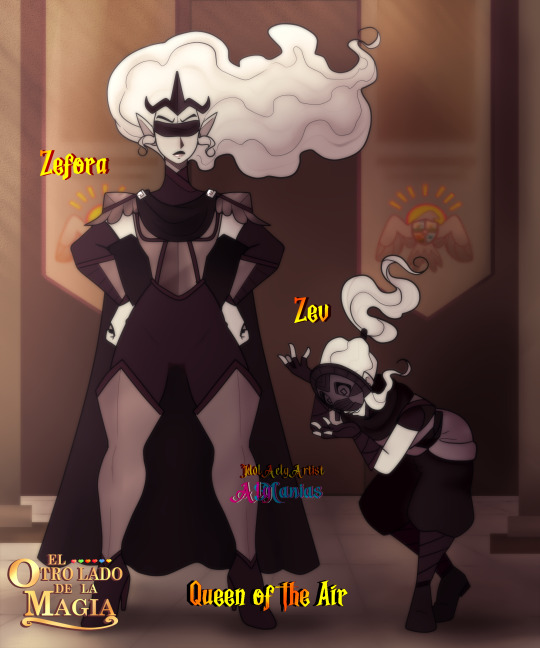
Personajes de mi próximo (si Dios me lo permite obvi) webcomic "El Otro Lado de la Magia" 6u6
Obvio faltan otros más, y espero poder mostrarlos pronto al publico. nun
#El Otro Lado de la Magia#my oc's#my art#Elias human Prince#Cervantes Monsters prince#Amy Fire Princess#Raviv water princess#Melissa princess of the earth#Ares Fire prince#Elizabeth Human Queen#Charlotte Monsters Queen#Rosalie Phantom Queen#Everett Fire King#Khalil Water Queen#Liam King of Earth#Zefora Queen of the Air#Ofelia#Mikael#Casandra#Haakon#Maria#Ethan#Adler#Ivor#Selig#Zev
209 notes
·
View notes
Text

See previous year's reading journeys
Book Goal: 30 50
Read So Far: 61
Books to Be Read:
Dark of the West - Joanna Hathaway
Books Read this Year:
These Violent Delights - Chloe Gong ~ Review
Our Violent Ends - Chloe Gong ~ Review
The Nature of Witches - Rachel Griffin
Of Cages and Crowns - Brianna Joy Crump
Gods of Jade and Shadow - Silvia Moreno Garcia ~ Review
Foul Lady Fortune - Chloe Gong ~ reread ~ Review
Anatomy: A Love Story - Dana Schwartz ~ Review
American Royals - Katharine McGee ~ Review
Ever the Hunted - Erin Sumerill
Ever the Brave - Erin Sumerill
Once a King - Erin Sumerill
Serpent and Dove - Shelby Mahurin
Six Crimson Cranes - Elizabeth Lim ~ Review
Last Violent Call - Chloe Gong ~ Review
The Dragon’s Promise- Elizabeth Lim
Shadow and Bone - Leigh Bardugo ~ Review
Skin of the Sea - Natasha Bowen
Soul of the Deep - Natasha Bowen
Siege and Storm - Leigh Bardugo ~ Review
Ruin and Rising - Leigh Bardugo ~ Review
Six of Crows - Leigh Bardugo ~ Review
Crooked Kingdom - Leigh Bardugo
King of Scars - Leigh Bardugo
The Raven Boys - Maggie Stiefvater ~ Review
The Dream Thieves - Maggie Stiefvater ~ Review
Blue Lily, Lily Blue - Maggie Stiefvater
Rule of Wolves - Leigh Bardugo
The Raven King - Maggie Stiefvater
Call Down the Hawk - Maggie Stiefvater
Mister Impossible - Maggie Stiefvater
Greywaren - Maggie Stiefvater
Caravel - Stephanie Garber ~ reread ~ Review
Legendary - Stephanie Garber
Finale - Stephanie Garber
The Poppy War - R. F. Kuang
The Inheritance Games - Jennifer Lynn Barnes
The Hawthorne Legacy - Jennifer Lynn Barnes
The Final Gambit - Jennifer Lynn Barnes
Clockwork Angel - Cassandra Clare ~ reread
Clockwork Prince - Cassandra Clare ~ reread
Clockwork Princess - Cassandra Clare ~ reread
Legendborn - Tracy Deonn ~ Review
Bloodmarked - Tracy Deonn
The Shadow of Perseus - Claire Heywood
The Hunger Games - Suzanne Collins ~ reread ~ Thoughts
Catching Fire - Suzanne Collins ~ reread
Mockingjay - Suzanne Collins ~ reread
Ballad of Songbirds and Snakes- Suzanne Collins
The Atlas Six - Olivie Blake
Guardians of Dawn: Zhara - S. Jae-Jones ~ Review
House of Salt and Sorrows - Erin A. Craig
Foul Heart Huntsman - Chloe Gong ~ Review
Atalanta - Jennifer Saint
The Enchanted Hacienda - J.C. Cervantes
Fourth Wing - Rebecca Yarros
This Vicious Grace - Emily Thiede
The Curse of Saints - Katie Dramis
Iron Flame - Rebecca Yarros
Song of Silver, Flame Like Night - Amélie Wen Zhao ~ Review
The Lightning Thief - Rick Riordan ~ reread
The Sea of Monsters - Rick Riordan ~ reread
The Titan’s Curse - Rick Riordan ~ reread
8 notes
·
View notes
Text
Books read in 2019
[2017] [2018]
January (9 Books)
Eleanor Roosevelt Vol. 3 by Blanche Cook (Non-fiction)
Muslim Girl by Amani Al-Khatahtbeh (Non-fiction)
Dirty Job by Christopher Moore (Fiction)
Persepolis 2 by Marjane Satrapi (Non-fiction, Comic)
Percy Jackson: The Lightning Thief by Rick Riordan (Fiction)
We Will Not Be Silent by Russell Freedman (Non-fiction)
Marvel Rising Vol. 1 by Devin Grayson (Comic)
Evicted by Matthew Desmond (Non-fiction)
Wuthering Heights by Emily Brontë (Fiction)
February (8 books)
Rabbit Cake by Anne Hartnett (Fiction)
Yes Please by Amy Poehler (Non-fiction)
Bitch Planet Vol. 2 by Kelly Sue DeConnick (Comic)
Adulthood is a Myth by Sarah Anderson (Non-fiction, Comic)
This Land Is Their Land by Barbara Ehrenreich (Non-fiction)
Doctor Who: The Tenth Doctor Vol. 2 by Robbie Morrison (Comic)
So You Want To Be a Modern Homesteader by Kirsten Lie-Nelson (Non-fiction)
The DC Universe by Neil Gaiman (Comic)
March (12 books)
Of Mice and Men by John Steinbeck (Fiction)
Under a Painted Sky by Stacey Lee (Fiction)
Becoming by Michelle Obama (Non-fiction)
Percy Jackson: Sea of Monsters by Rick Riordan (Fiction)
The Girl from the Other Side Vol. 4 by Nagabe (Manga)
The Girl from the Other Side Vol. 5 by Nagabe (Manga)
The Girl from the Other Side Vol. 6 by Nagabe (Manga)
Delicious in Dungeon Vol. 5 by Ryoko Kui (Manga)
Delicious in Dungeon Vol. 6 by Ryoko Kui (Manga)
Giant Spider & Me Vol. 1 by Kikoru Morino (Manga)
Giant Spider & Me Vol. 2 by Kikoru Morino (Manga)
We Are Never Meeting in Real Life by Samantha Irby (Non-fiction)
April (3 books)
The Life Changing Magic of Tidying Up by Marie Kondo (Non-fiction)
Spark Joy by Marie Kondo (Non-fiction)
Parable of the Talents by Octavia Butler (Fiction)
May (4 books)
Dungeons and Dragons and Philosophy by Various (Non-fiction)
Stories by Various (Fiction)
The Bear and the Nightingale by Katherine Arden (Fiction)
Atlas Obscura by Joshua Foer (Non-fiction)
June (4 books)
Turtles All the Way Down by John Green (Fiction)
How to Grow Up by Michelle Tea (Non-fiction)
Apollo 8 by Jeffrey Kluger (Non-fiction)
Rad American Women A-Z by Kate Schatz (Non-fiction)
July (4 books)
Organic Gardening by Charles Dowding (Non-fiction)
Infidel by Ayaan Hirsi Ali (Non-fiction)
Love and Resistance by Various (Non-fiction)
The Soil Will Save Us by Kirsten Ohlson (Non-fiction)
August (7 books)
We Need New Names by NoViolet Bulawayo (Fiction)
Eloquent Rage by Brittney Cooper (Non-fiction)
Squirrel Girl Vol. 9: Squirrels Fall Like Dominoes by Ryan North (Comic)
Death Masks by Jim Butcher (Fiction)
2 Fuzzy 2 Furious by Shannon Hale (Fiction)
How Dare the Sun Rise by Sandra Uwiringiyimana (Non-fiction)
Deadpool Classic Vol. 8 by Frank Tieri (Comic)
September (8 books)
The Geek Feminist Revolution by Kameron Hurley (Non-fiction)
Embroideries by Marjane Satrapi (Non-fiction, Comic)
Percy Jackson: The Titan’s Curse by Rick Riordan (Fiction)
The Coaching Habit by Michael Stanier (Non-fiction)
Feet of Clay by Terry Pratchett (Fiction)
Fullmetal Alchemist Vol. 5 by Hiromu Arakawa (Manga)
Why Does He Do That by Lundy Bancroft (Non-fiction)
Doctor Who: The Tenth Doctor Vol. 3 by Nick Abadzis (Comic)
October (5 books)
Don Quixote by Miguel de Cervantes (Fiction)
Farm City by Novella Carpenter (Non-fiction)
Percy Jackson: The Battle of the Labyrinth by Rick Riordan (Fiction)
Hunger by Roxane Gay (Non-fiction)
Squirrel Girl Vol. 10: Life Is Too Short, Squirrel by Ryan North (Comic)
November (6 books)
Doctor Who: The Tenth Doctor Vol. 4 by Nick Abadzis (Comic)
13 Clocks by James Thurber (Fiction)
Daring to Drive by Manal Al-Sharif (Non-fiction)
Packing for Mars by Mary Roach (Non-fiction)
Hogfather by Terry Pratchett (Fiction)
Blood Rites by Jim Butcher (Fiction)
December (6 books)
Jingo by Terry Pratchett (Fiction)
Rejected Princesses by Jason Porath (Non-fiction)
The Little Prince by Antoine de Saint-Exupéry (Fiction)
Doctor Who: The Tenth Doctor Vol. 5 by Nick Abadzis (Comic)
The Raven Boys by Maggie Stiefvater (Fiction)
100 Years of Solitude by Gabriel Garcia Márquez (Fiction)
0 notes
Text
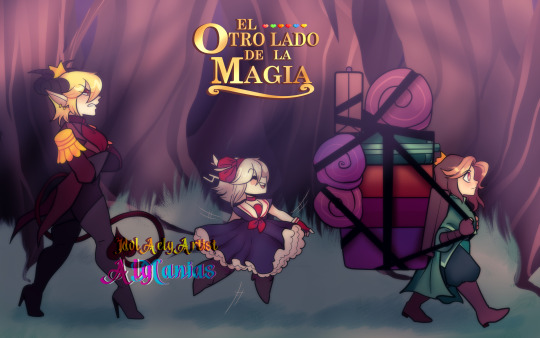
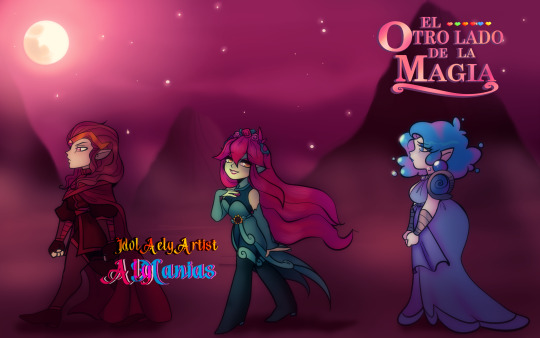
"El Otro Lado de la Magia"
___________________________________________
Mis bebes- 💖💕✨
#El Otro Lado de la Magia#my oc's#my art#my project#Elias Rondell#Amy Sunshine#Cervantes Rovann#Ares Sunshine#Melissa Sunshine#Raviv Sunshine#Human Prince#Fire Princess#Monster Prince#Fire Prince#Earth princess#Water Princess
85 notes
·
View notes
Text
Origins of Sansa’s Name
I’ve seen a lot of tumblr posts over the years that attribute Sansa’s name to meaning “charm or praise” or a play on the French sans a Stark (“without a Stark”), and occassionally, I’ve seen her name compared to a thumb piano, but not one of these theories has ever sat right with me.
ASOIAF is based on history and draws from literature and mythology, after all. So why not look there for the origins of an usual name?
I’ll start with the obvious. The series is called A Song of Ice and Fire. Her sister is named Arya, pronounced like “are ya?” but suspiciously reminiscent of the musical term aria (air) for a solo in a larger work. Sansa, then, could be traced to poetic terms. Her name sounds like a softer version of the Italian stanza (literally: “room”), a structured set of lines akin to a prose paragraph or a song verse. If we think of a poem as a body of work in the way that an opera consists of airs and a series consists of books, then Sansa’s perspective is one piece of the narrative.
The purported original plan for Sansa was for her to marry Joffrey as expected, have a child, and bitterly regret her choices. So we could ask ourselves if Sansa shares a name with an actual person.
Well...yes.
In 1494, one Sancha of Aragon married Goffredo, the youngest son of Rodrigo Borgia and Vannozza dei Cattanei. Borgia, the powerful family infamous for accusations of murder, adultury, and incest that would shock a Lannister. In fact, Jaime and Cersei have been compared to siblings Cesare and Lucrezia, given his status as a skilled knight and her history of using poison when charm fails (as Lucrezia was rumored to do). It’s a nice enough comparison, but here’s the real kicker: Goffredo was also referred to by another name, Jofré.
But Sansa’s arc has changed from GRRM’s original idea, so what could the name mean for her story?
Let’s look at her character: courteous, eager to please, and wanting a world as romantic as oral tradition would have it. You could say she waxes quixotic about how life “was just like the songs” and how Joffrey was her dulcet prince...until bitter reality destroys her dreams for the future. Then she tries to resign herseslf to the worst (“in life, the monsters win”) and make practical decisions in order to survive. Her journey from romance to realism mirrors that of Cervantes’s titular Don Quixote. Any variation on Quijote would be too obvious, though, so why not refer to his sidekick Sancho?
Sancho is Quixote’s foil, the realist to his romantic, the peasant to his nobility, and eventually, the two begin to rub off on each other. By the end of the novel, Don Quixote is a depressed man, but Sancho has risen to adopt his optimistic and romantic dreams for them. Could this mean that Sansa will eventually return home with a song in her heart?
Yes. How could it end any other way?
#Sansamonth2022
#sansa stark#asoiaf#asoiaf meta#sansamonth2022#sansamonth#sansaappreciationfest2022#let's file this under Books day
74 notes
·
View notes
Photo
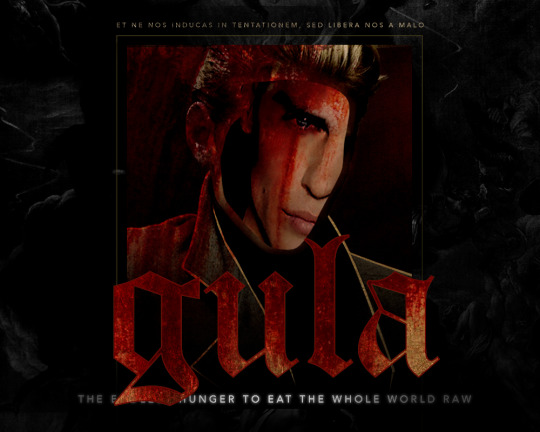
GULA. ⟡ JULIAN DE CERVANTES. ⟡ 21, M. ⟡ DECEASED, 1994 - 2016.
TW: violence, abuse, gaslighting.
IS IT POSSIBLE FOR ONE TO BE BORN A MONSTER? OR ARE ALL MONSTERS MADE? CORRUPTED? DEBASED? FED LITTLE BY LITTLE ON THE TASTE OF SIN UNTIL IT IS ALL THEY KNOW TO EAT. The important thing to understand is that you were never meant to exist. You were a miracle. God-given. When providence failed your parents for the last time, they turned in helplessness and wretched despair to science. You were, inevitably, a mistake. A fatal misstep of divine intervention entwined with fate eating its own tail. As if at the first dawning of the world, you were born in a corona of light hallowed and divided from darkness. The golden boy; sun-blood handsome. Blessed with the grace and beauty of a seraphim, you were everything your parents could ever dream of. The perfect son that would one day inherit the De Cervantes throne, empire and glory. — If they had known then the breed of monster they had created, would they have cared? Would it have stopped them from raising the culmination of all their greed and gluttony, their fathomless vices and infinite hunger?
Yes, desire is so different when God bore you hungry. And a monster can only choose to become one of two things: feared, or hated. You were determined to tear your fate from the throat of divinity itself—by blood, or unholy sacrilege. For who is to say a monster cannot be loved, too?
— ⟡ —
Before you met them, you sat perched upon the celestial pinnacle of rank and hierarchy, sacrosanct and inviolable. The consummate, gilded heir, the people’s prince, a chameleon with as many forms as the Lernean Hydra had heads—head boy, athlete, socialite, politician, valedictorian. You were a Trompe-l'œil reflecting back whatever someone chose to see in you, magnifying their envy and attraction, their jealousy and greatest desire. And all the while, the longing for violence in you grew, the craving for annihilation—to destroy, or be destroyed, to burn so long as you could feel something real. Humanity has always been captivated by beauty. In the same vein they are seduced by sin, they find they cannot tear their eyes away from the beautiful, the terrible, the sublime. There is an inherent longing to forgive beauty anything—to elevate it upon a pedestal, paint it into romanticism and immortality, ascribe it qualities of goodness and virtue. From a very young age, you harboured an uncanny awareness of how the world perceived you, of how it was predisposed to adore you. Cherubic, doe-eyed, blond as a Raphaelite angel, you were untouchable. Every incident or deliberate transgression was smoothed away like an errant curl of golden hair, evanesced as if it never happened. You tested the boundaries in incrementally dangerous and diabolical ways, and each time that you were exonerated, absolved of guilt or consequence, something in you slipped a little farther from humanity.
In one way, none of it was your fault. And in another, all of it was. Perhaps it is less tragic to tell the story of a twenty-one year old boy dead on the brink of adulthood, the vestiges of youth and limitless promise still clinging to his skin, if he deserved to die. Is the cause more justifiable the more irredeemable you are? The truth is, you knew what was coming. When you love someone, you hand them a knife and a promise. You see, love is not merely a feeling for you. It’s a religion. A ritualistic undertaking of maintaining order and making peace, a systemic unravelling of a person to become something new and other, something unmade. For you, love was the root of all truly unforgivable sins. And you, who had been born and created in his likeness by divine will, could not abide heresy. You had given them everything, loved them, cared for them, like their very own god. You had promised them eternity—an opportunity to come as close to living forever as mortality could ever dare—and they had abandoned it all for the sin of knowing good from evil. Well then, let the punishment fit from the crime. What choice did you have, but to cast them out from Eden and exiled to an eternity of purgatory. Either they would join you one by one in Hell, or you’d make them suffer until they begged for absolution.
— ⟡ —
It was a steady, ruinous crawl of inevitability: the escalation from playground torment and childish wickedness to the premeditated affliction of suffering, the surgical fascination with just how much you could get away with. It might have been katabatic, if not for the fact that somewhere along the way, you realised the only logical explanation was that you were already in Hell. Damned or condemned, the world had placed you here, in the heart of the Inferno, to play its king and god. As with everything else in your life, serendipity and misfortune conspired in paving your way to Verdamme. Old faces and old patterns circling back upon themselves, ouroboros-like, as you re-encountered the little circle of friends who had traversed in and out of your life in free-wheeling chaos and hedonism. You encountered new ones, too, voracious and fascinating, and so very alive with all their hunger and human imperfections. You became their beloved leader, the sun around which all their planets and moons orbited. You won them without deception, by popular election and sheer force of charisma, magnetism and ever-burning temptation. In those years of Paradise, revelling in your own vainglory and self-indulgence, you knew no bounds to your relentless pursuit of pleasure and sin. Sin was a matter of perspective, after all, and what were friends for if not to sit with you in Hell, laughing as you dared each other to dance a little closer to the abyss?
They were mercurial, temperamental creatures, your friends. Ruled by instinct and weakness, so often fettered by their own shortcomings and failures. You showed them a path through it all: a way out. A chance to live free of abandon and inhibition in the endless garden of Eden, to exist in the ecstasy of perpetual summer. You can admit now, that maybe you pushed a little too hard in the places where they would not bend. Those soft, inconsequential debilities of ethics and morality. The pricklings of a conscience awakening from a long winter’s hibernation. They will lie and deceive, because such is their nature, because it is what the guilty are wont to do. They will tell anyone and everyone who will listen that you persuaded and cajoled them, tempting them with vice and taboo, and that when you couldn’t sway the majority, when you saw yourself beginning to lose your grasp on their hearts and minds, you turned to hatred and fear instead. They will say that you forced their hand, you manipulated their very ability to decipher good from evil and cast their doubts into the ether. They will say that your reign as benevolent king devolved into a dictatorship. They will call you tyrant. Caesar, spat at your feet like a curse where it was once an irreverent tease.
Sic semper tyrannis. They will say that you deserved to die. That your monstrousness and lack of humanity had consumed them entire and they could no longer bear it. Only you know the truth. Only you know that each of them is as guilty and abominable as the next, and so drenched in sacrilege and crimes against morality that the Devil would welcome them with open arms. They conspired against you, they attempted to murder you. And now, at last, Judgement Day has come.
You won’t be lonely in Hell for much longer. One way or another, they’ll all wind up here soon enough.
NPC. ⟡ FC: JEREMY DUFOUR.
1 note
·
View note
Text
Olvidado Rey Gudú - A review
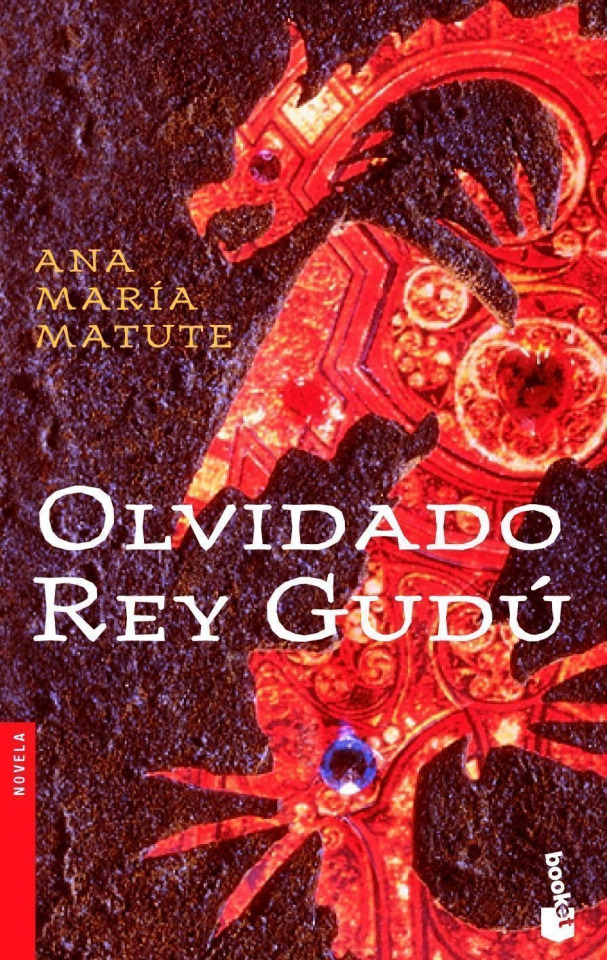
“En ocasiones, cuando se embriagaba, Sikrosio decía cosas extrañas. Señalaba al Norte, y murmuraba: «De la Selva, llega el misterio». Indicaba después hacia el Este: «De la Estepa, la
destrucción, el fuego, la muerte...». Luego, volvíase hacia el Sur: «Del otro lado de las Lisias, el sueño, lo imposible..., y la mentira». Por fin, con voz donde latía una misteriosa tristeza, señalaba a Occidente: «Y de más allá de las tundras, el olvido».”
Here goes, finally, my re-reading of this classic of Spanish fantasy. How, don’t you recognize it? Not even the author? Shame.
Olvidado Rey Gudú is the masterpiece - and more than that, the life-lasting work - of an author who was the third woman to occupy the RAE, winner of the Cervantes Prize, member of the Hispanic Society and nominated for the Nobel Prize for Literature. She has a thousand more awards, which are explained for one reason only: her prose is perfect. Difficult, but perfect. And she provides a combination that until now I have only seen in someone like Tolkien: merging fantasy, that genre so reviled by high literature, with a perfect literary technique.
Yes, I don't understand why some people compare her to George R.R. Martin - or even hinting that she should have learned from him (!?!?). It's the other way around. The only person with whom this author can be compared is with Tolkien himself, and it is not a trivial comparison, because the old English Professor and father of the genre was equally exquisite, refined with his prose; and like him, Matute makes her words sing, and also her words hurt, sometimes making you reread a paragraph again so you can try to figure out where that wound came from.
Now, if what you are expecting is a pleasant, fast paced book, full of swearwords, tits and dragons, then this is not Olvidado Rey Gudú. This book, which took her a lifetime to write, her life work, tells of the rise and fall of the fictional Olar dynasty, in the imagined kingdom of Olar. It is a considerable thick book, but until beyond the middle of the book, it reads very fast and very well - if you are in the habit of reading! Because nowadays it seems that books have to be easy to swallow, like a liquefied porridge...
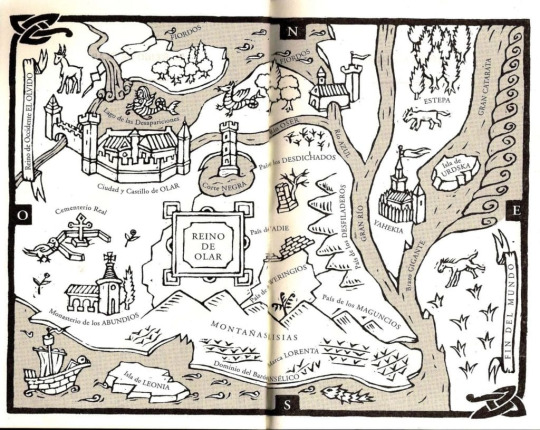
Kingdom of Olar, location of the events.
Thousands of characters pass through your eyes, each one more endearing than the previous one, although caution, Olvidado Rey Gudú does not provide a happy ending, nor does it have a happy beginning or development. Only the title is a song to melancholy. The book is melancholic. A child of war, with her childhood shattered, Matute suffered in the flesh of a writer and in inspiration the trauma of the Spanish Civil War, which had her Muse dead rather than alive for most of her life - and still she managed to write what she wrote! Thus, you do not have before you a story that tries to convince you, but the author writes for herself, how she wants and what she wants, without bothering to be logical, without fear of being misunderstood, because it is not easy to understand what you are reading.
Several topics you cross with this book: memory, oblivion, loss, hatred, cruelty, ill-fated love. Most of her characters - particularly the males - are absolutely hateful, and most of her characters - particularly the females - behave incomprehensibly. There are magical and strange events that the author will not bother to explain to you, because explanations are superfluous; and it is here where the book becomes difficult to digest. There is no purpose, it is not intended to show you anything. Lean out and read, and don't ask for more.
Each character is unforgettable in their own way, but Queen Ardid manages to out-stand, probably her favorite character, the orphan girl who grew up among vineyards accompanied by a goblin (Trasgo) and a sorcerer (Hechicero), and wise as she was, devised the perfect plan to take revenge on her father’s murderer; marry him and become the queen of his kingdom. However, her wisdom played a trick on her by deciding to extirpate - magically, it is understood - the heart of her only son, Prince Gudú: incapable of love by such a spell, it will take years for Ardid to discover that she has created a monster. But she will find out, and she will regret it.

Press note with the last edition, including illustrations and new notes.
Around this monster that is Gudú a mesh of characters is articulated, and which, to a greater or lesser extent, will be victims of his monstrosities. To highlight, the Princess Tontina and her magical innocence, his cousin, Predilecto, with more shape of a king than Gudú himself precisely for his ability to love; Ondina, fairy of the waters, who in trying to love and understand humans will forge her own annihilation - just like the goblin himself - and many other characters who suffer the terrible decision of Ardid, without even knowing why or how.
The ending is devastating, because no character survives the monstrosity, except Gudú, who is punished, without understanding why, to contemplate the collapse of his kingdom in oblivion, that kingdom that cost him a whole life to build and lacks purpose when everyone who filled it is gone. Thus, the author constructs a tribute to the melancholy of loss and how the lack of love, or the inability to love, is the greatest of the mutilations.
Olvidado Rey Gudú is a lyrical, symbolic, literary tale that more often than not doesn’t pretend to relate concrete events, but build allegories - even the author's intention is seen when she grants her characters names as curious as they are symbolic, and she laughs at herself through Ardid and Gudú.
That is why it is so difficult for many people to read this book, so they call it boring and hard to go through, and that is why, I am afraid, it has never been translated into English or popularized, not even in Spain; which seems to me a terrible crime, considering the literary height of its author. But since I don't want to be a pushy snob either, I have to admit that the book itself becomes difficult to follow more or less at the height in which the characters of Tontina and Predilecto, who grant us the most beautiful love story, disappear.

Quote from the book. Illustration: Àngel Lluís Sànchez.
In short, a masterpiece, difficult, strange, hard to read, but a masterpiece after all. We have had the privilege of meeting a Spanish Tolkien, and we have not recognized her, because we are not up to such a narrative. Hopefully one day we will be.
As for the rest, I recommend it to fantasy lovers who are not afraid to face a challenge. In the end, the journey pays off, albeit a painful journey, with no reward in the end; a personal testament of the same author and the time she had to live.
8 notes
·
View notes
Text
A list of books I've read so far in 2019 and my ratings:
Mistborn book 1: The Final Empire by Brandon Sanderson (4.4/5)
Mistborn book 2: The Well of Ascension (4/5)
Mistborn book 3: The Hero of Ages (4.2/5)
What if it's Us by Adam Silvera and Becky Albertali (4.3/5)
Our Dark Duet (Monsters of Verity book 2) by Victoria Schwab (5/5)
Vicious by V. E. Schwab (4.3/5)
Daughter of Smoke and Bone book 1: Daughter of Smoke and Bone by Laini Taylor (4/5)
Daughter of Smoke and Bone book 2: Days of Blood and Starlight (4.4/5)
Daughter of Smoke and Bone book 3: Dreams of Gods and Monsters (4.1/5)
Truthwitch book 1: Truthwitch by Susan Dennard (3/5)
Truthwitch book 2: Windwitch (4/5)
Ember in the Ashes book 2: A Torch against the Night by Sabaa Tahir (4.2/5)
Ember in the Ashes book 3: A Reaper at the Gates (4.5/5)
Strange the Dreamer book 1: Strange the Dreamer by Laini Taylor (5/5)
Strange the Dreamer book 2: Muse of Nightmares (5/5)
The Night Circus by Erin Morgenstern (4.1/5)
Pride and Prejudice by Jane Austen (4/5)
The Grisha Trilogy book 1: Shadow and Bone by Leigh Bardugo (3/5)
The Grisha Trilogy book 2: Siege and Storm (3.5/5)
The Grisha Trilogy book 3: Ruin and Rising (4/5)
The Star Touched Queen by Roshani Chokshi (3.8/5)
The Priory of the Orange Tree by Samantha Shannon (4/5)
A Crown of Wishes by Roshani Chokshi (4.2/5)
The Star Touched Stories by Roshani Chokshi (4.5/5)
The Hate U Give by Angie Thomas (4.5/5)
All the Light We Cannot See by Anthony Doerr (5/5)
The Storm Runner book 1: The Storm Runner by J. C. Cervantes (4.6/5)
Sal and Gabi book 1: Sal and Gabi Break the Universe by Carlos Hernandez (5/5)
Aru Shah book 2: Aru Shah and the Song of Death (5/5)
Six of Crows book 1: Six of Crows by Leigh Bardugo (reread) (4.6/5)
Six of Crows book 2: Crooked Kingdom (reread) (5/5)
Autoboyography by Christina Lauren (5/5)
The Gentleman's Guide to Vice and Virtue by Mackenzi Lee (5/5)
The Raven Cycle book 1: The Raven Boys by Maggie Stiefvater (reread) (4.5/5)
The Raven Cycle book 2: The Dream Thieves (reread) (5/5)
The Raven Cycle book 3: Blue Lily Lily Blue (reread) (5/5)
The Raven Cycle book 4: The Raven King (reread) (4.5/5)
Josh and Hazel's Guide to Not Dating by Christina Aguilera (1.5/5)
The Seven Husbands of Evelyn Hugo by Taylor Jenkins Reid (4/5)
All for the Game book 1: The Foxhole Court by Nora Sakavic (3/5)
All for the Game book 2: The Raven King (3/5)
All for the Game book 3: The King's Men (3.5/5)
Daisy Jones and the Six by Taylor Jenkins Reid (3.5/5)
Montague Siblings book 2: The Lady's Guide to Petticoats and Piracy by Mackenzi Lee (4.5/5)
The Prince and the Dressmaker by Jen Wang (4.5/5)
Geekerella by Ashley Poston (4/5)
The Astonishing Colour of After by Emily X. R. Pan (4/5)
Nikolai duology book 1: King of Scars by Leigh Bardugo (3/5)
Red, White and Royal Blue by Casey McQuiston (5/5)
Like A Love Story by Abdi Nazemian (4.2/5)
Heroes of Olympus book 1: The Lost Hero by Rick Riordan (reread) (4.5/5)
Heroes of Olympus book 2: The Son of Neptune (reread) (4.6/5)
Heroes of Olympus book 3: The Mark of Athena (reread) (5/5)
Heroes of Olympus book 4: The House of Hades (reread) (5/5)
Heroes of Olympus book 5: The Blood of Olympus (reread) (4.7/5)
If We Were Villains by M. L. Rio (5/5)
Winternight book 1: The Bear and the Nightingale by Katherine Arden (4.2/5)
Heartstopper Vol. 1 by Alice Oseman (4/5)
Heartstopper Vol. 2 (4/5)
Good Omens by Terry Pratchett and Neil Gaiman (4.5/5)
Reverie by Ryan La Sala (3.7/5)
When Dimple Met Rishi by Sandhya Menon (2/5)
Trials of Apollo book 1: The Hidden Oracle by Rick Riordan (reread) (4.5/5)
Trials of Apollo book 2: The Dark Prophecy (reread) (4.2/5)
Trials of Apollo book 3: The Burning Maze (reread) (5/5)
1 note
·
View note
Photo

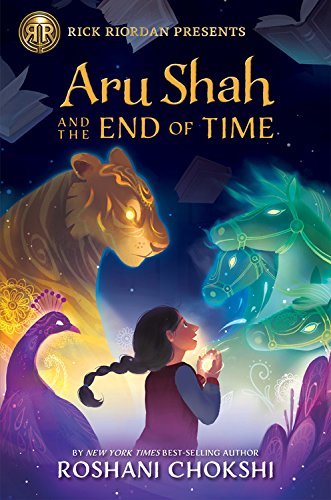
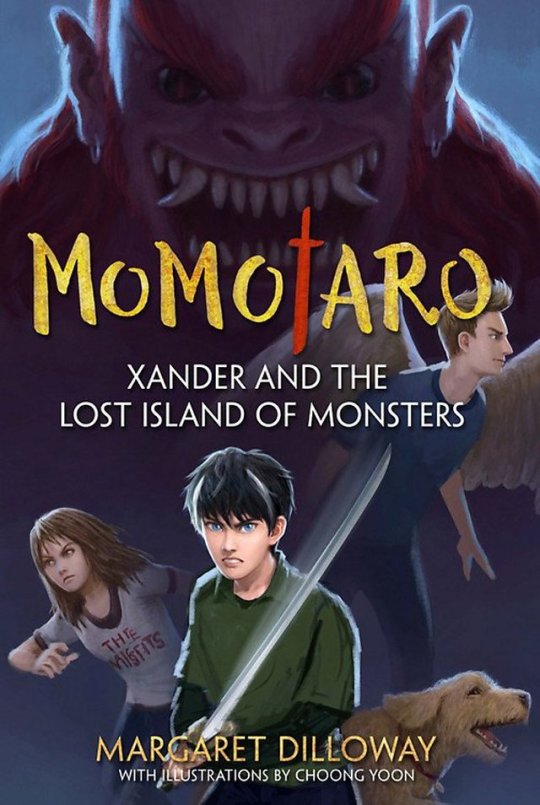
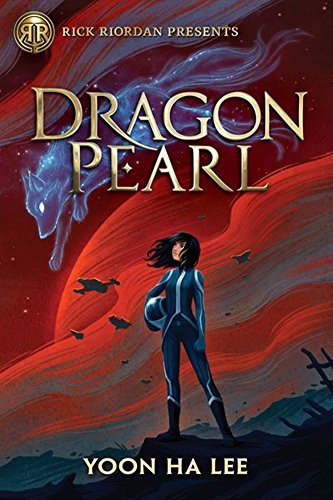
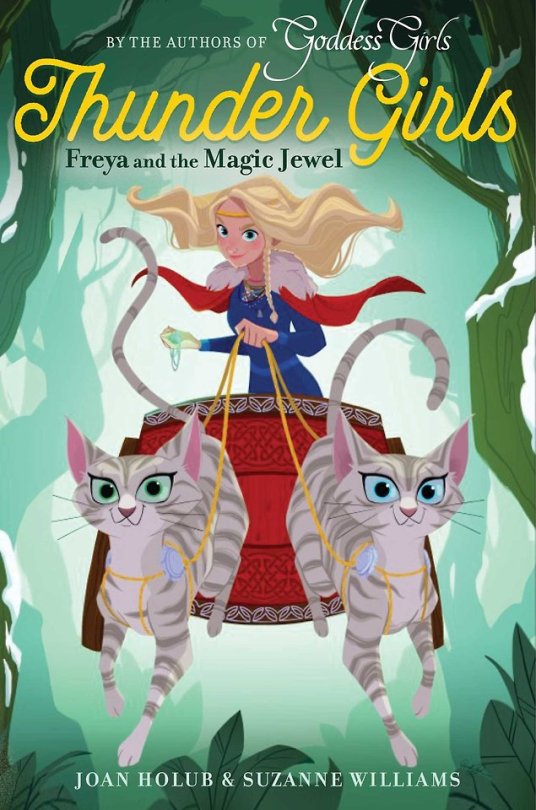
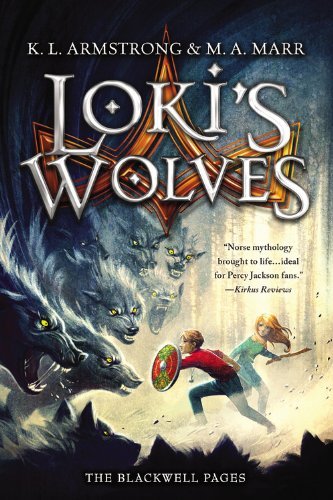
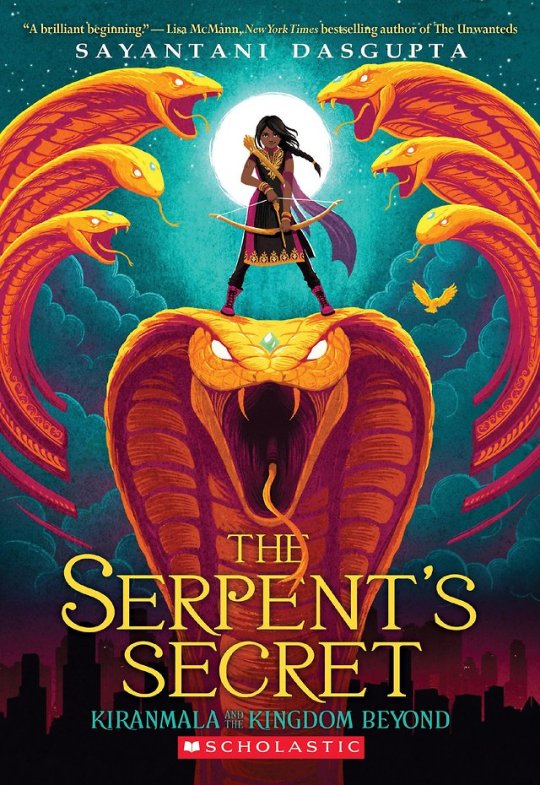

DasGupta, Sayantani. Serpent’s Secret (Book 1 in the Kiranmala and the Kingdom Beyond Series). 2018. Grades 3-7.
Up until her twelfth birthday, Kiranmala considered herself an ordinary sixth-grader in Parsippany, New Jersey, but then her parents disappear and a drooling rakkhosh demon shows up in her kitchen, and soon she is swept into another dimension, full of magic, winged horses, talking birds (very annoying), and cute princes--and somehow Kiranmala needs to sort it all out, find her parents, and basically save the world.

Yep. The Tiger’s Apprentice (Book 1 in the Tiger’s Apprentice Series). 2003. Grades 5-6.
A tiger, a monkey, a dragon, and a twelve-year-old Chinese American boy fight to keep a magic talisman out of the hands of an enemy who would use its power to destroy the world.

Riordan, Rick. The Red Pyramid (Book 1 in the Kane Chronicles Series). 2010. Grades 4-9.
After their father's "research experiment at the British Museum unleashes the Egyptian god Set, Carter and Sadie Kane embark on a dangerous journey across the globe--a quest which brings them ever closer to the truth about their family, and their links to a secret order that has existed since the time of the pharaohs.

Chokshi, Roshani. Aru Shah and the End of Time (Book 1 in the Pandava Series). 2018. Grades 3-7.
Twelve-year-old Aru stretches the truth to fit in at her private school, but when she is dared to prove an ancient lamp is cursed, she inadvertently frees an ancient demon.

Lee, Yoon Ha. Dragon Pearl. 2019. Grades 3-7.
A space opera about thirteen-year-old Min, who comes from a long line of fox spirits. But you'd never know it by looking at her. To keep the family safe, Min's mother insists that none of them use any fox-magic, such as Charm or shape-shifting. They must appear human at all times.
Dilloway, Margaret. Momotaro : Xander and the Lost Island of Monsters (Book 1 in the Momotaro Series). 2016. Grades 3-7.
Twelve-year-old Xander discovers and learns to use the fantastic powers that are his birthright in order to save his father. Based on Japanese mythology.
Marriott, Zoe. The Name of the Blade. 2014. Grades 6-9.
When Mio takes the katana, a Japanese long sword her grandfather hid in theattic before his death, her actions unleash an ancient evil onto the streets of London.

Cervantes, Jennifer. Storm Runnner. 2018. Grades 3-7.
To prevent the Mayan gods from battling each other and destroying the world, thirteen-year-old Zane must unravel an ancient prophecy, stop an evil god, and discover how the physical disability that makes him reliant on a cane also connects him to his father and his ancestry.

Anders, Lou. Frostborn (Book 1 in the Thrones & Bones Series). 2014. Grades 3-7.
Destined to take over his family farm in Norrøngard, Karn would rather play the board game, Thrones and Bones, until half-human, half frost giantess Thianna appears and they set out on an adventure, chased by a dragon, undead warriors, an evil uncle, and more.
Armstrong, Kelley. Loki’s Wolves (Book 1 in the Blackwell Pages Series). 2013. Grades 3-7.
Matt Thorsen is a direct descendent of the order-keeping god Thor, and his classmates Fen and Laurie Brekke are descendents of the trickster god Loki. When Ragnarok--the apocalypse--threatens, the human descendents of the gods must fight monsters to stop the end of the world.
Gaiman, Neil. Odd and the Frost Giants. 2009. Grades 3-7.
An unlucky twelve-year-old Norwegian boy named Odd leads the Norse gods Loki, Thor, and Odin in an attempt to outwit evil Frost Giants who have taken over Asgard.
Holub, Joan. Freya and the Magic Jewel (Book 1 in the Thunder Girls Series). 2018. Grades 3-7.
Unlike her twin brother Frey, twelve-year-old girlgoddess Freya is not excited about their invitation to Asgard Academy, especially after she loses her magical jewel, leaving her powerless and worried about making friends.
O’Hearn, Kate. Valkyrie (Book 1 in the Valkyrie Series). 2016. Grades 4-8.
Freya is a Valkyrie, a reaper of souls. But she hates what she must do. She doesn't like humans and the pain they inflict on each other, and she never wants to visit another battlefield. But when a soldier begs her to help his family back in the human realm, she agrees and discovers a world of friends. Now she'll have to find a way to keep her promise to the soldier and prevent the wrath of Odin from destroying the world.
Richards, Jasmine. Secrets of Vahalla (Book 1 in the Secrets of Vahalla Series). 2016. Grades 3-7.
It's not every day that you find a famous weatherwoman bound by magic to a tree deep in the woods. Or discover that the weatherwoman is in fact Sunna, the Norse Goddess of the Sun, and one of the seven day guardians who keep time in order. But that's just what happens to new friends Buzz and Mary--and it's only the start of their adventure. Now, as the people of Earth are forced to repeat the same Saturday over and over again, Buzz and Mary must journey to collect the Runes of Valhalla and awaken the other day guardians, before vengeful god Loki can get to them first.
Shaughnessy, Adam. The Entirely True Story of the Unbelievable Fib. 2015. Grades 3-7.
When eleven-year-old Pru and new boy ABE discover another world beneath their quiet town, where Viking gods lurk just out of sight, they must race to secure the Eye of Odin, source of all knowledge--and the key to stopping a war that could destroy both human and immortal realms.

Briggs, Korwin. Gods and Heroes : Mythology around the World. 2018. Grades 3-7.
Before there was Batman, Wonder Woman, or Black Panther...there was Indra, Hindu king of gods, who battled a fearsome snake to save the world from drought. Athena, the powerful Greek goddess of wisdom who could decide the fate of battles before they even began. Okuninushi, the Japanese herowho defeated eighty brothers to become king and then traded it all for a chance at immortality. Featuring more than 70 characters from 23 cultures around the world, this A-to-Z encyclopedia of mythology is a who's who of powerful gods and goddesses, warriors and kings, enchanted creatures andearthshaking giants whose stories have been passed down since thebeginning of time.
#books#mythology#chapter books#elementary#middle school#nonfiction#fantasy#adventure#book recs#book recomendations#middle grade#middle grade books
3 notes
·
View notes
Text
Top 10 Most Popular Books of All Time
While over a million books are published every year, only some books seem to stand apart from the madding crowd. These unique books not only have endured the test of time, but they have also imprinted themselves on the human imagination and psyche. While the question of what makes a classic or which book should be included in a top 10 list is always open for debate, we have ranked the books in this list in a rather empirical way, which is according to the number of copies sold. One caveat before we proceed: Some religious books, such as the Bible, the Quran, and the Quotations from Chairman Mao more than likely have over a billion copies each in existence. However, because they are impossible to track, we have left them off this list. But I think we can all agree that they are exceptionally popular.
So, onward we go to the top 10 most popular books of all time. Does your favorite book make the list?
#10. Coming in at number #10 is Dan Brown’s 2003 blockbuster novel The Da Vinci Code, with over 80 million copies sold. More than just a murder mystery, The Da Vinci Code explores controversial historical secrets and questionable cabals, all of which has appealed to puzzle lovers, history buffs, and conspiracy theorists alike. To top it off, the Catholic Church publicly denounced the novel, which only added to its popularity.
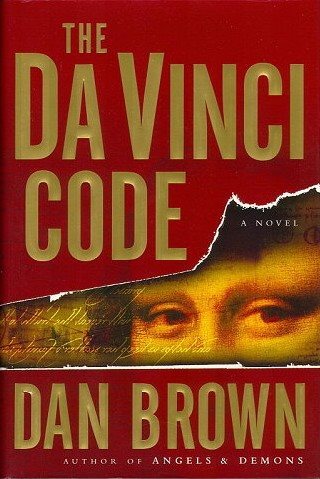
The Catholic Church publicly denounced this novel, making it even more popular
9. The 9th most popular book of all time is C.S. Lewis’s endearing children’s classic, The Lion the Witch and the Wardrobe, with over 85 million copies sold. Turning on the “magical doorway” motif that is also found in popular books, such as Alice in Wonderland and Harry Potter, Lewis’ classic story is ridiculously successful. It has been translated into 47 languages and has been adapted for TV, stage, radio, and Hollywood. So, take another bite of Turkish delight and fall in love with this classic in all of its renditions.
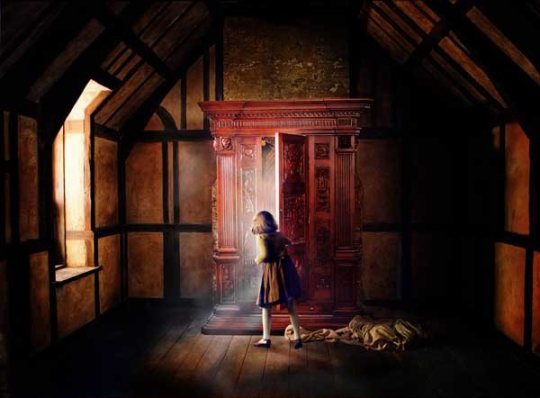
The idea of the doorway in this novel linking the real to the magical was used years later by J.K. Rowling in her series Harry Potter
8. From the smallest beginnings come the largest legends, including J.R.R. Tolkien’s masterpiece The Hobbit, which comes in at #8 with over 100 million copies sold. This timeless quest narrative about a humble hobbit navigating his way in a breathtaking and dangerous Middle Earth is filled clever riddles, beautiful language, spirited adventure, feisty dwarves, ethereal elves, and brave wizards. Happy Hobbitdays, everyone!

When this book was adapted to a movie, the film crew used all the gold paint in New Zealand when creating Smaug's lair. They had to import more from Germany in order to finish the project
7. The Chinese classic Dream of the Red Chamber may be somewhat unknown in the West, but it has often been called the “book of millennium.” Ranked number seven on our list, Dream of Red Chamber has sold over 100 million copies. An 18th century saga about a noble family that falls from grace, Dream of the Red Chamber is full of stunning social, cultural, and spiritual details of the time. Just be sure to set aside a couple of days to read it: Dream of the Red Chamber is twice as long as War and Peace.

This popular Chinese novel has an entire literary field dedicated to its study
6. It’s no surprise that the queen of suspense, Agatha Christie, would make an appearance on this list. Her mystery masterpiece And Then There Were None has sold over 100 million copies. Not only is it Christie’s best selling novel, it is also the world’s best-selling mystery. Set on a private island off the coast of Devon, the tense mystery narrates the misadventures of ten curious and rather unlikable strangers-- who are all guilty of something.
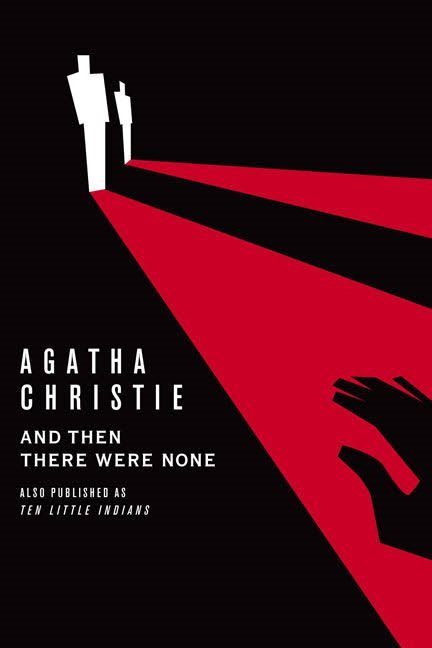
In this legendary mystery novel, each murder relates to a line in an old nursery rhyme
5. Even muggles would predict that at least one of J.K Rowling’s Harry Potter books would make the top ten most popular books of all time. Indeed, Harry Potter and the Philosopher’s Stone is number 5 on our list. By now, most people know that Rowling’s beloved book first introduced the lightning-scarred, bespectacled wizard who would change the world.

The British name of this popular novel is actually Harry Potter and the Philosopher’s Stone. The U.S. editor for this book thought that "Philosopher's Stone" didn't convey magic overtly enough
4. Of course the heart-breaking tale The Little Prince would be on any list of the most popular books of all time. Translated into 300 languages and dialects, this tender tale of friendship, loneliness, love and loss deserves its place as a cultural and global icon. Just grab a box of tissues before reading.

Astronomers named an actual asteroid after the one the little prince lives on in this novel
3. The Lord of the Rings by J.R.R. Tolkien is the ultimate fantasy novel ranks number 3 on our list, with 150 million copies sold. Tolkien’s rich tri-part narrative (which was originally sold as one book) basically created the modern fantasy genre. While there is one ring to rule Middle Earth, Tolkien’s Lord of the Rings clearly rules the world of fantasy.
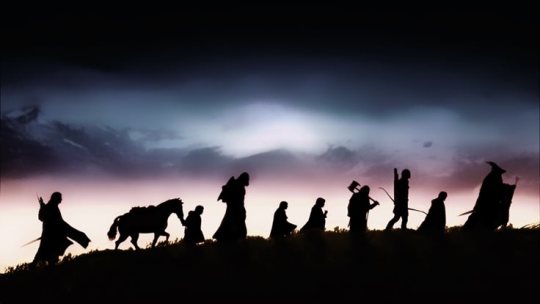
Although we know The Lord of the Rings as a trilogy, it originally was published as one massive book
2. Love or hate the book, Charles Dickens’ A Tale of Two Cities is ranked number 2 on our list of the most popular books ever, with over 200 million copies sold. While many of these copies may have been sold to high schools students who were required to read this epic tale, it, nonetheless, is a masterpiece filled with sly humor, meaningful descriptions, and a cast of quirky characters caught up in the blood-stained streets of Paris during the French Revolution. While you may have hated the book in high school, we think you will find that it is actually quite the page-turner when you read it on your volition.
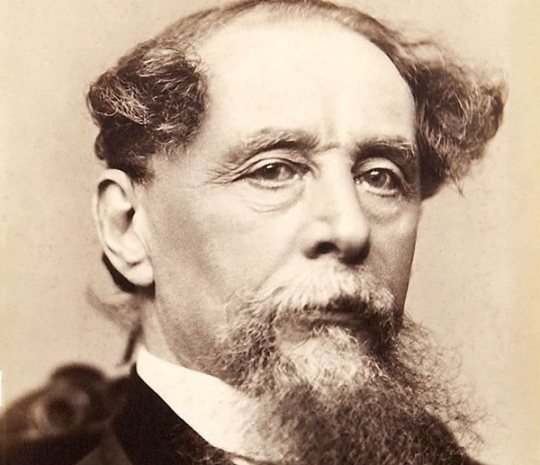
In this book, Dickens wrote the timeless phrase "It was the best of times; it was the worst of times."
1.And the number one most popular book of all time is Miguel de Cervantes masterpiece, Don Quixote. Variously called “The First Novel,” or “An infinite Novel,” Don Quixote features a delusional nobleman, windmill monsters, and portly squires. Widely considered the first true modern novel, Don Quixote also gave us the popular saying “The proof is in the pudding.” With book sales over 500 million copies, Don Quixote easily tops Dickens 200 million copies. The proof is in the pudding, indeed.
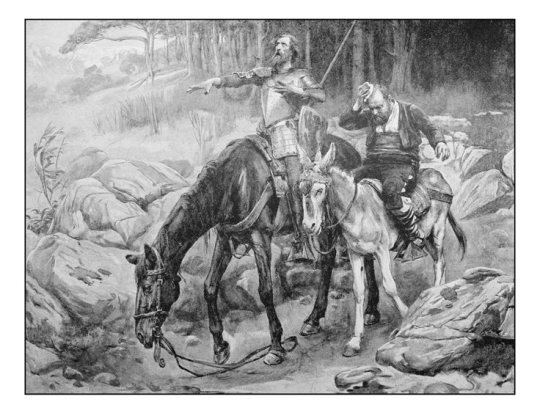
This novel, published in 1612, follows the adventures of Quixote as he ventures into the Spanish countryside
If your book didn’t make the list, don’t worry. At the end of the day, the number of copies sold doesn’t make a book important or, necessarily, even a classic. What’s important is that you’re reading what you love. Popular or not, let’s read our books of choice with confidence and pride.
#books#bookstagram#bookworm#booklr#booklover#book list#book quotes#quotes#literature#literary#bibliophile#reading#read#love#harry potter#don quichotte#lord of the rings#little prince#tale of two cities#c.s. lewis#dan brown#dream of the red chambe#facts#fact retriever
9 notes
·
View notes
Text
Updated Book List: March
The Secret Garden by Frances Hodgson Burnett
White Fang by Jack London
1984 by George Orwell
Diary by Chuck Palahnuk
In Pursuit of the Unknown by Ian Stewart
Ender’s Game by Orson Scott Card
The Devil in the White City by Erik Larson
Arms and the Man by George Bernard Shaw
Dracula by Bram Stoker
On Killing by Dave Grossman
Candide by Voltaire
Silver Linings Playbook by Matthew Quick
Perks of Being a Wallflower by Stephen Chbosky
Call me Zelda by Erika Roebuck
Hemingway’s Girl by Erika Roebuck
Water for Elephants by Sara Gruen
The Chronicles of Thomas Covenant: The Unbeliever by Stephen R. Donaldson
A Wrinkle in Time by Madeleine L’Engle
Garden of Eden by Ernest Hemingway
Islands in the Stream by Ernest Hemingway
Heart-shaped Box by Joe Hill
Name of the Wind by Patrick Rothfuss
Till We Have Faces by C. S. Lewis
The Reason for God by Timothy Keller
The Raven Cycle by Maggie Stiefvater
Warriors Don’t Cry by Melba Pattillo Beals
Night Circus by Erin Morgenstern
In the Garden of Beasts by Erik Larson
The only Pirate at the Party by Lindsey Stirling
Frankenstein by Mary Shelley
The Trial by Francis Kafka
Necromancer by William Gibson
The Things They Carried by Tim O’Brien
Slaughterhouse Five by Kurt Vonnegut
Fahrenheit 451 by Ray Bradbury
A Confederacy of Dunces by John Toole
In Cold Blood by Truman Capote
Lord of the Flies by William Golding
The Alchemist by Paulo Coelho
Tuesdays with Morrie by Mitch Albom
A Picture of Dorian Gray by Oscar Wilde
A Clockwork Orange by Anthony Burgess
Thinking Fast and Slow by Daniel Kahneman
The Name of the Rose by Umberto Eco
The Stranger by Albert Camus
Outliers by Malcolm Gladwell
Catch 22 by Joseph Heller
Animal Farm by George Orwell
Moonwalking with Einstein by Joshua Foer
Watchman by Allan Moore & Dave Gibbons
Flowers for Algernon by Daniel Keys
Never Let Me Down by Kazuo Ishiguro
Safekeeping by Jessamyn Hope
Book of Night Women by Marion James
11/22/63 by Stephen King
Who Asked You? By Terry McMillan
The Curious Incident of the Dog in the Nighttime by Mark Haddon
Circle of Friends by Maeve Binchy
Legend by Marie Lu
Season of Storms by Susanna Kearsley
13 Reasons Why by Jay Asher
Dark Places by Gillian Flynn
Gone Girl by Gillian Flynn
“On Writing” by Stephen King
Hitchhikers Guide to the Galaxy by Douglas Adams
Brave New World by Aldous Huxley
The Mill on the Floss by George Eliot
Middlemarch by George Eliot
Silas Marner by George Eliot
Death of a Salesman by Arthur Miller
Books that changed the World by Andrew Taylor
Go Ask Alice by Anonymous
Of Mice and Man by John Steinbeck
The Grapes of Wrath by John Steinbeck
Forever by Judy Blume
My Darling, My Hamburger by Paul Zindel
The Adventures of Huckleberry Finn by Mark Twain
To Kill a Mockingbird by Harper Lee
Manchild in the Promised Land by Claude Brown
The Learning Tree by Gordon Parks
Black Like Me by John Howard Griffin
The Lottery by Shirley Jackson
One Day in the Life of Ivan Denisovich by Alexander Solzhenitsyn
The Scarlet Letter by Nathaniel Hawthorne
A Separate Peace by John Knowles
One Flew Over the Cuckoo’s Nest by Ken Kesey
Johnny Got His Gun by Dalton Trumbo
Anne Frank: The Diary of a Young Girl
I Know Why A Caged Bird Sings by Maya Angelou
Deliverance by James Dickey
The Good Earth by Pearl Buck
A Hero Ain’t Nothin’ but a Sandwich by Alice Childress
The Exorcist by William Peter Blatty
A Farewell to Arms by Ernest Hemingway
It’s OK if You Don’t Love Me by Norma Klein
Pride and Prejudice by Jane Austen
The Lord of the Rings by J. R. R. Tolkein
Jane Eyre by Charlotte Bronte
Harry Potter and the Sorcerer’s Stone by J. K. Rowling
Harry Potter and the Chamber of Secrets by J. K. Rowling
Harry Potter and the Prisoner of Azkaban by J. K. Rowling
Harry Potter and the Goblet of Fire by J. K. Rowling
Harry Potter and the Order of the Phoenix by J. K. Rowling
Harry Potter and the Half-blood Prince by J. K. Rowling
Harry Potter and the Deathly Hallows by J. K. Rowling
Wuthering Heights by Emily Bronte
The Golden Compass by Philip Pullman
The Subtle Knife by Philip Pullman
The Amber Spyglass by Philip Pullman
Great Expectations by Charles Dickens
Little Women by Louisa May Alcott
Tess of D’Urbervilles by Thomas Hardy
The Complete Works of Shakespeare
Rebecca by Daphne Du Maurier
Birdsong by Sebastian Faulks
Gone with the Wind by Margaret Mitchell
Bleak House by Charles Dickens
War and Peace by Leo Tolstoy
Les Miserables by Victor Hugo
Lolita by Vladimir Nabokov
A Christmas Carol by Charles Dickens
The Three Musketeers by Alexandre Dumas
Madame Bovary by Gustave Flaubert
Moby Dick by Herman Melville
Typee by Herman Melville
Watership Down by Richard Adams
Ulysses by James Joyce
The Bell Jar by Sylvia Plath
The Color Purple by Alice Walker
Weird History 101 by John Richards Stephens
The Da Vinci Code by Dan Brown
Persuasion by Jane Austen
Essays and Poems by Ralph Waldo Emerson
Anna Karenina by Leo Tolstoy
The Magnificent Ambersons by Booth Tarkington
Ethan Frome by Edith Wharton
Walden and Civil Disobedience by Henry David Thoreau
The Magician’s Nephew by C. S. Lewis
The Lion, the Witch, and the Wardrobe by C. S. Lewis
The Horse and his Boy by C. S. Lewis
Prince Caspian by C. S. Lewis
The Voyage of the Dawn Treader by C. S. Lewis
The Silver Chair by C. S. Lewis
The Last Battle by C. S. Lewis
This Country of Ours by H. E. Marshall
An Abundance of Katherines by John Green
Emma by Jane Austen
The Adventures of Robin Hood by Roger Lancelyn Green
A Thousand Splendid Suns by Khalid Hosseini
The Great Gatsby by F. Scott Fitzgerald
The Glass Menagerie by Tennessee Williams
Beloved by Toni Morrision
Orlando by Virginia Woolf
Tracks by Louise Erdich
Ruth Hall by Fanny Fern
White Teeth by Zadie Smith
Their Eyes were Watching God by Zora Neale Hurston
A Room of One’s Own by Virginia Woolf
The Awakening by Kate Chopin
Three Great Plays by Eugene O’Neill
Our Town by Thorton Wilder
A Raw Youth by Fyodor Dostoevsky
The Last of the Mohicans by James Fenimore Cooper
The Prince and the Pauper by Mark Twain
20,000 Leagues Under the Sea by Jules Verne
The Great Divorce by C. S. Lewis
Stepping Heavenward by E. Prentiss
Lively Art of Writing by Lucille Vaughn Payne
Captains Courageous by Rudyard Kipling
Pilgrim’s Progress by John Bunyan
Works of Josephus Volume III by Josephus
The Maze Runner by James Dashner
The Scorch Trials by James Dashner
The Death Cure by James Dashner
Angels and Demons by Dan Brown
The Last Testament of Oscar Wilde by Peter Ackroyd
Cry, My Beloved Country by Alan Paton
Goliath by Scott Westerfeld
The Old Man and The Sea by Ernest Hemingway
Billy Budd and Other Stories by Herman Melville
Unbroken by Laura Hillenbrand
The Girl with the Dragon Tattoo by Stieg Larsson
The Girl who Played with Fire by Stieg Larsson
The Girl who Kicked The Hornet’s Nest by Stieg Larsson
Wicked by Gregory Maguire
Son of a Witch by Gregory Maguire
Murder At The Vicarage by Agatha Christie
The Looking Glass Wars by Frank Beddor
Looking for Alaska by John Green
Thus Spoke Zarathustra by Friedrich Nietzsche
The Jungle by Upton Sinclair
King Arthur and the Knight of the Round Table by Roger Lancelyn Green
A Game of Thrones by George R. R. Martin
Anthem by Ayn Rand
Ballet Shoes by Noel Streatfeild
On War by Carl Von Clausewitz
August: Osage County by Tracy Letts
Only a Theory by Kenneth Miller
My Ten Years in a Quandry by Robert Benchly
One Day by David Nicholls
The Bad Beginning by Lemony Snicket
The Reptile Room by Lemony Snicket
The Wide Window by Lemony Snicket
The Miserable Mill by Lemony Snicket
The Austere Academy by Lemony Snicket
The Ersatz Elevator by Lemony Snicket
The Vile Village by Lemony Snicket
The Hostile Hospital by Lemony Snicket
The Carnivorous Carnival by Lemony Snicket
The Slippery Slope by Lemony Snicket
The Grim Grotto by Lemony Snicket
The Penultimate Peril by Lemony Snicket
The End by Lemony Snicket
Selected Writings by Gertrude Stein
The School for Scandal by Richard Brinsley Sheridan
Gentlemen Prefer Blondes but Gentlemen Marry Brunettes by Anita Loos
The Count of Monte Cristo by Alexandre Dumas
The Pickwick Papers by Charles Dickens
The Invisible Man by H. G. Wells
Don Quixote by Miguel de Cervantes
Life of Pi by Yann Martel
David Copperfield by Charles Dickens
The Age of Innocence by Edith Wharton
The Scarlet Pimpernel by Baroness Orczy
The Turn of the Screw by Henry James
Three More Plays by George O’Neill
Emily of New Moon by L. M. Montgomery
The Once and Future King by T. H. White
Crime and Punishment by Fyodor Dostoevsky
The Ginger Man by J. P. Donleavy
Return of the Native by Thomas Hardy
Poetry by Emily Dickenson
The Lightning Thief by Rick Riordan
The Sea of Monster by Rick Riordan
The Titan’s Curse by Rick Riordan
The Battle of the Labyrinth by Rick Riordan
The Last Olympian by Rick Riordan
The Metamorphoses by Ovid
The Kite Runner by Khaled Hosseini
The Complete Works of Sherlock Holmes by Arthur Conan Doyle
The Revenant by Michael Punke
Miss Peregrine’s Home for Peculiar Children by Ransom Riggs
The Complete Stories by Flannery O’Connor
The Final Adventures of Sherlock Holmes by Arthur Conan Doyle
Grendel by John Gardner
The Fault In Our Stars by John Green
I AM THE MESSENGER by Markus Zusak
The Book Thief by Markus Zusak
Eragon by Christopher Paolini
Eldest by Christopher Paolini
Inheritance by Christopher Paolini
Brsinger by Christopher Paolini
Just One Damned Thing After Another by Jodi Taylor
A Movable Feast by Ernest Hemingway
The Hobbit by J. R. R. Tolkien
Mr. Midshipman Hornblower by C. S. Forestor
Northanger Abbey by Jane Austen
The Pocket Chaucer by Geoffrey Chaucer
On Writing by Charles Bukowski
Will in the World by Stephen Greenblatt
Snow Flower and the Secret Fan by Lisa See
Pride and Prejudice and Zombies by Seth Grahame-Smith
Crazy Love by Francis Chan
The Divine Comedy by Dante Alighieri
Alice’s Adventures in Wonderland by Lewis Carroll
Penny Dreadfuls by Stefan Dziemianowics
Classic Works by F. Scott Fitgerald
John Carter of Mars by Edgar Rice Burroughs
The Complete Tales and Poems by Edgar Allen Poe
The Rivals of Sherlock Holmes by Stefan Dziemianowics
Fall On Your Knees by Ann-Marie Mcdonald
The Swiss Family Robinson by Johann Wyss
Divergent by Veronica Roth
A History of Greece by J. B. Bury
Em and the Big Hoom by Jerry Pinto
Something to Tell You by Hanif Kureishi
Inkheart by Cornelia Funke
Inkspell by Cornelia Funke
Inkdeath by Cornelia Funke
Grimm’s Fairy Tales by Jacob and Wilhelm Grimm
Treasure Island by Robert Louis Stevenson
Robinson Crusoe by Daniel Defoe
Anne of Green Gables by L. M. Montgomery
Anne of Avonlea by L. M. Montgomery
Anne of the Island by L. M. Montgomery
The Princess and the Goblin by George MacDonald
A Little Princess by Frances Hodgson Burnett
Through the Looking Glass by Lewis Carroll
The Wizard of Oz by L. Frank Baum
The Jungle book by Rudyard Kipling
A Tale of Two Cities by Charles Dickens
Just So Stories by Rudyard Kipling
Journey to the Center of the Earth by Jules Verne
The Adventure of Tom Sawyer by Mark Twain
Hans Andersen’s Fairy Tales by Hans Christian Andersen
Fantastic Beasts and Where to Find Them by J. K. Rowling
All the Lights We Cannot See by Anthony Doerr
Hearts in Atlantis by Stephen King
Sharp Objects by Gillian Flynn
Diary of an Unlikely Call Girl by Anonymous
Sweet Bird of Youth by Tennessee Williams
The Rose Tattoo by Tennessee Williams
The Night of the Iguana by Tennessee Williams
World, Chase Me Down by Andrew Hilleman
The Little Paris Bookshop by Nina George
Who’s Afraid of Virginia Woolf? by Edward Albee
The Copernican Revolution by Thomas S. Kuhn
The Monster of Florence by Douglas Preston and Mario Spezi
Leaves of Grass by Walt Whitman
#booklist#bibliophile#bibliophilia#the quiet bibliophile#update#books#bookstore#library#literature#novels#authors
9 notes
·
View notes
Note
I WANNA SEE THE PRINCE FIGHT CERVANTES FUCKING MONSTER FIGHT
“No.“ He let his robes slip off his shoulders as he continued smoking, "There’s no point in fighting someone who you know you can beat and yet they haven’t done anything to you.”
1 note
·
View note
Text
So some background!
This is the start of a fan fiction that hopefully will go for a while. Some background of it first. This is a Sanders Side’s hero fan fiction! Let’s start with some guilds/factions or houses.
Hero Guilds
Achilles- Strength seems to be the only word known in this category besides the word Glory. These heros may fight for the right things but they want only Glory and fame. They use their powers and strength to find it.
Mercy-These heros know nothing but self sacrifice and help they don't care about the fame. They want nothing more but the villains to be stopped before anyone gets hurt. They are seen as weak and timid.
Veich-Emotional houses their powers steam from deeper places within. No room for anti-heros knowing the moral code and strongly being instilled here within these heros. They want to be like Mercy in getting the villians but but won't mind to be indulged with the exposer.
Phoenix-These heros rise from the ashes metaphorically. They relies the long drawn out days the hero days are and find ways to relive it. They are intelligent enough to think for themselves and don't like to conform to normal rules.
Villains factions
Grayson-A LONG LINE OF SUPER INTELLIGENT VILLAINS. PEOPLE IN THIS FACTION HAVE ABOVE NORMAL IQ AND IDEAS. TEHY ARE DESTINED TO BE NOTHING SHORT OF GREAT.
Vani-THIS FACTION IS STRONG AND DECITFUL. THESE VILLAINS TURN INTO SOME OF THE MINOR VILLAINOUS FEW BUT THEY LEARN TO BE THE BEST OF THE WORST.
Ting-AS A FACTION FOR WHAT PEOPLE CALL "SOFT" VILLAINS IT HAS A MONSTEROUS PAST SHREWDING IT. STRONG AND INTELLEGINT AS THE FIRST TWO BUT WITH THE NEGITIVE OF LAZY THE VILLAINS OF THIS FACTION CAN BE QUIET SCARY WHEN PROVOKED.
Ciema-THEIR SCHEMAS ARE OVER THE TOP AND SOMETIMES RISKING ONES OWN LIVES BUT THEY GET THE JOB DONE. THE VILLAINS OF THIS FACTION GO OUT OF THEIR NORMAL IDEA FOR A VILLAINS AND STRIKE TERROR IN THE HEART OF ANY HERO WHO DEARS TO ENTER THEIR SIGHTS.
Excuse all the yelling from the previous post haha, now onto our heros/Villians!
Daniel[Deceit] Cervantes (Villain)-Shapeshifting-Vani-Deception
Logan Grayson(Villain)- Mind-Grayson-Professor Dire
Patton Veich (Hero)-Emotions are weapons similar to Blue diamonds-Veich-Empathy
Remus Royal(Villain)-Darkness manipulation-Ciema-Duke
Roman Royal(Hero)-Light manipulation-Achilles-Prince
Virgil Veich(Class Villain Rep. Anti-hero)-uses anxiety/fear to make clouds of darkness-Ting-Paranoia
Remy Veich (Class Hero Rep. Anti-hero)-Sleep-Phonix-Sand Man
Lee Royal((Virgil/Roman’s Son)Hero)-Emotions turn into a real bean of light that can hurt ask Daniel-Achilles-Lightmares.
A few notes is Patton and Logan and Deceit are older then Remus,Roman,Virgil, Remy, And Lee of course. Anyways! Hopefully I write a fanfic about this soon. See ya~Mod K
#patton sanders#roman sanders#logan sanders#virgil sanders#remus sanders#deciet sanders#sander sides#superhero au#fan fiction ideas#sander sides au
0 notes
Text
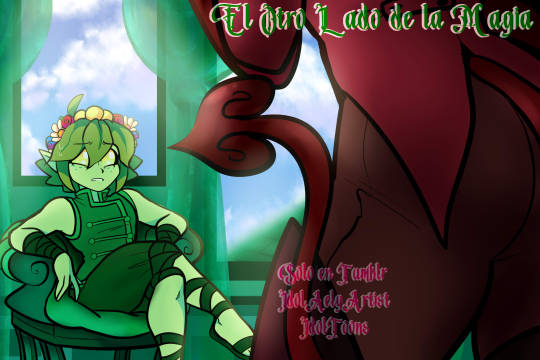
Un dibujo sin contexto alguno...
Solo quería dibujar a Liam sin su capa. :p
#El Otro Lado de la Magia#my oc's#my art#Liam Sunshine#King of earth#Cervantes Rovann#Monster prince
41 notes
·
View notes
Text
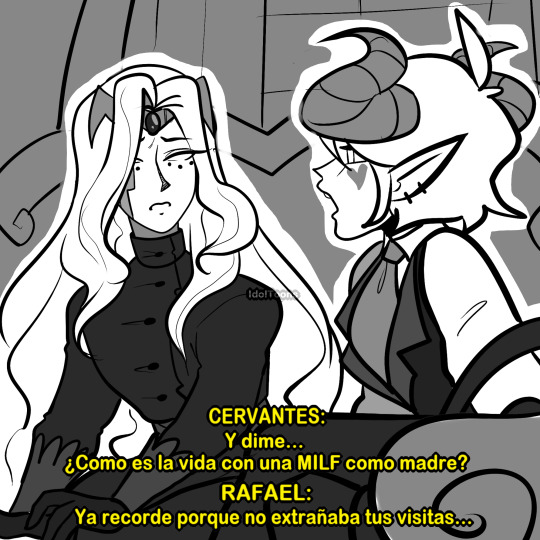
Siglos que no dibujaba a Cervantes y a Rafael. 💙v💖/
#El Otro Lado de la Magia#Rafael HarleyTong#Cervantes Rovann#Phantom Prince#Monster Prince#my oc's#my art#sketch
49 notes
·
View notes
Text

Mi Cervantes. X’D
Bien perris como siempre! >:y
#Me gusta mas esa vestimenta#Vestimenta de alguien de la realeza#Elegante#Pero es Cervantes al fin y al cabo X'D#my oc's#my art#El Otro Lado de la Magia#Cervantes#Cervantes Rovann#Monster prince
53 notes
·
View notes